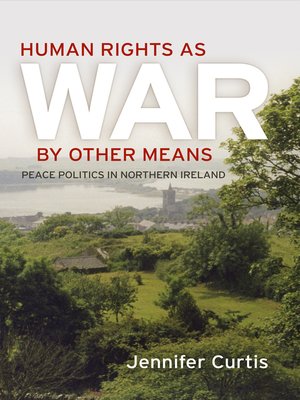Human Rights as War by Other Means
ebook ∣ Peace Politics in Northern Ireland · Pennsylvania Studies in Human Rights
By Jennifer Curtis

Sign up to save your library
With an OverDrive account, you can save your favorite libraries for at-a-glance information about availability. Find out more about OverDrive accounts.
Find this title in Libby, the library reading app by OverDrive.



Search for a digital library with this title
Title found at these libraries:
| Loading... |
Following the 1998 peace agreement in Northern Ireland, political violence has dramatically declined and the region has been promoted as a model for peacemaking. Human rights discourse has played an ongoing role in the process but not simply as the means to promote peace. The language can also become a weapon as it is appropriated and adapted by different interest groups to pursue social, economic, and political objectives. Indeed, as violence still periodically breaks out and some ethnocommunal and class-based divisions have deepened, it is clear that the progression from human rights violations to human rights protections is neither inevitable nor smooth.
Human Rights as War by Other Means traces the use of rights discourse in Northern Ireland's politics from the local civil rights campaigns of the 1960s to present-day activism for truth recovery and LGBT equality. Combining firsthand ethnographic reportage with historical research, Jennifer Curtis analyzes how rights discourse came to permeate grassroots politics and activism, how it transformed those politics, and how rights discourse was in turn transformed. This ethnographic history foregrounds the stories of ordinary people in Northern Ireland who embraced different rights politics and laws to conduct, conclude, and, in some ways, continue the conflict—a complex portrait that challenges the dominant postconflict narrative of political and social abuses vanquished by a collective commitment to human rights. As Curtis demonstrates, failure to critique the appropriation of rights discourse in the peace process perpetuates perilous conditions for a fragile peace and generates flawed prescriptions for other conflicts.






